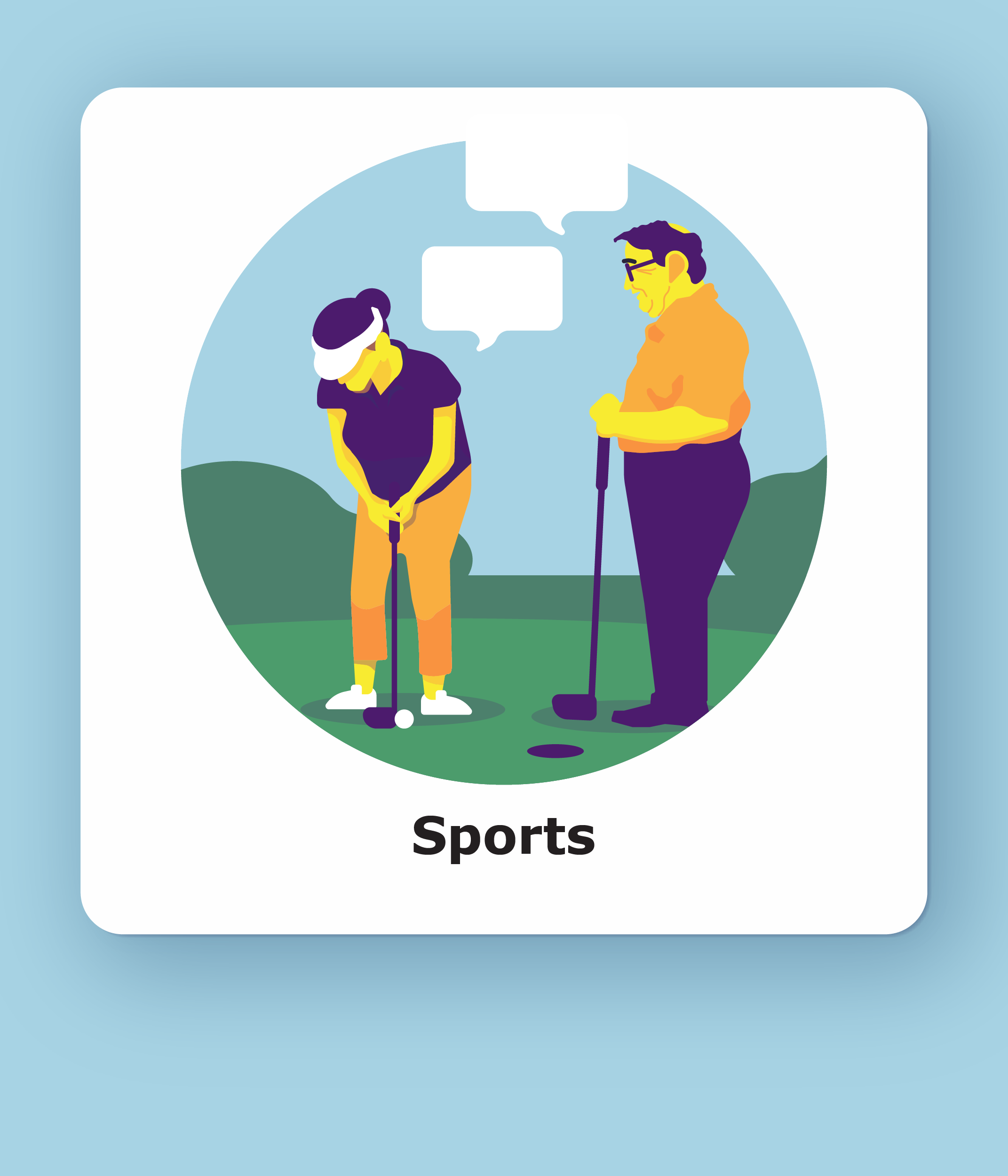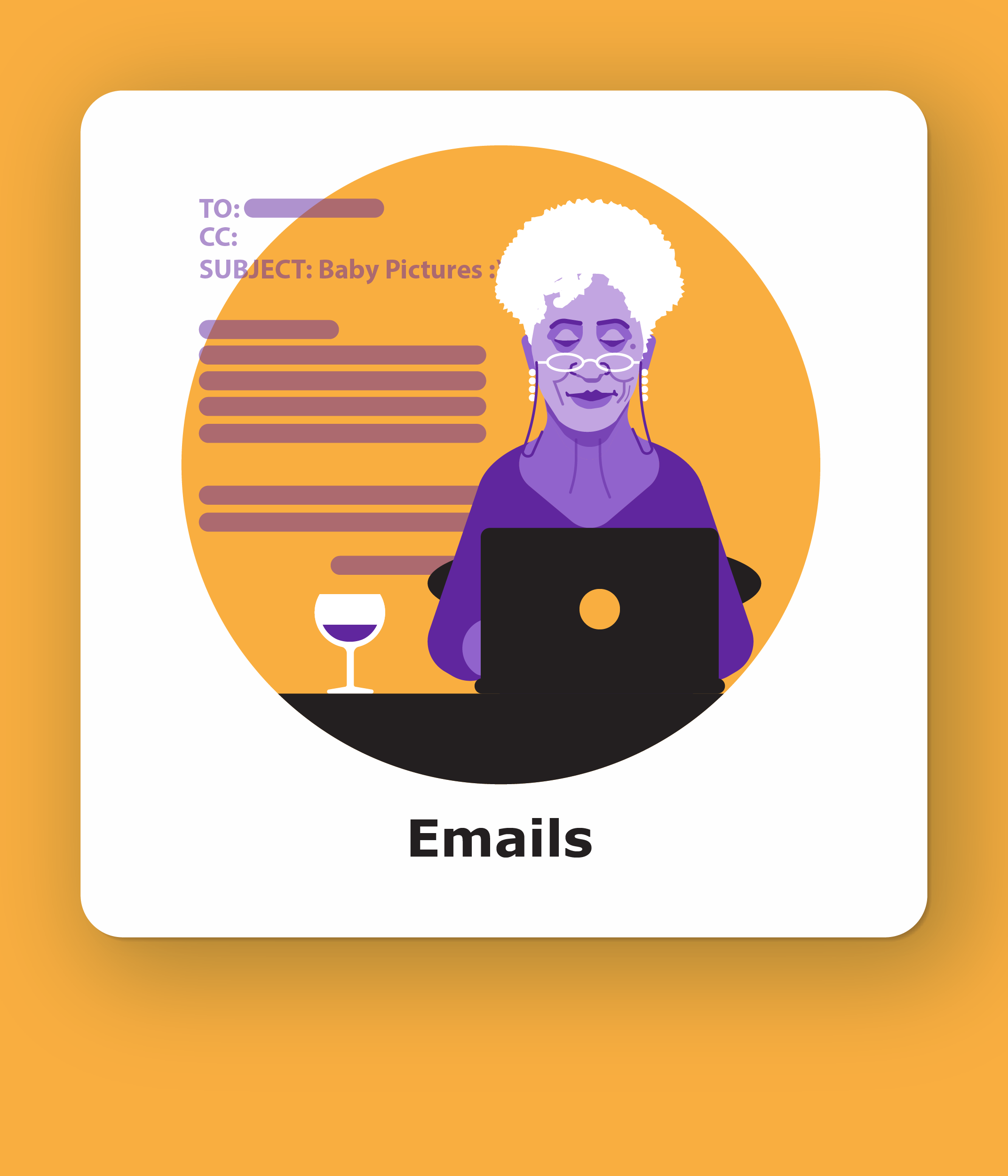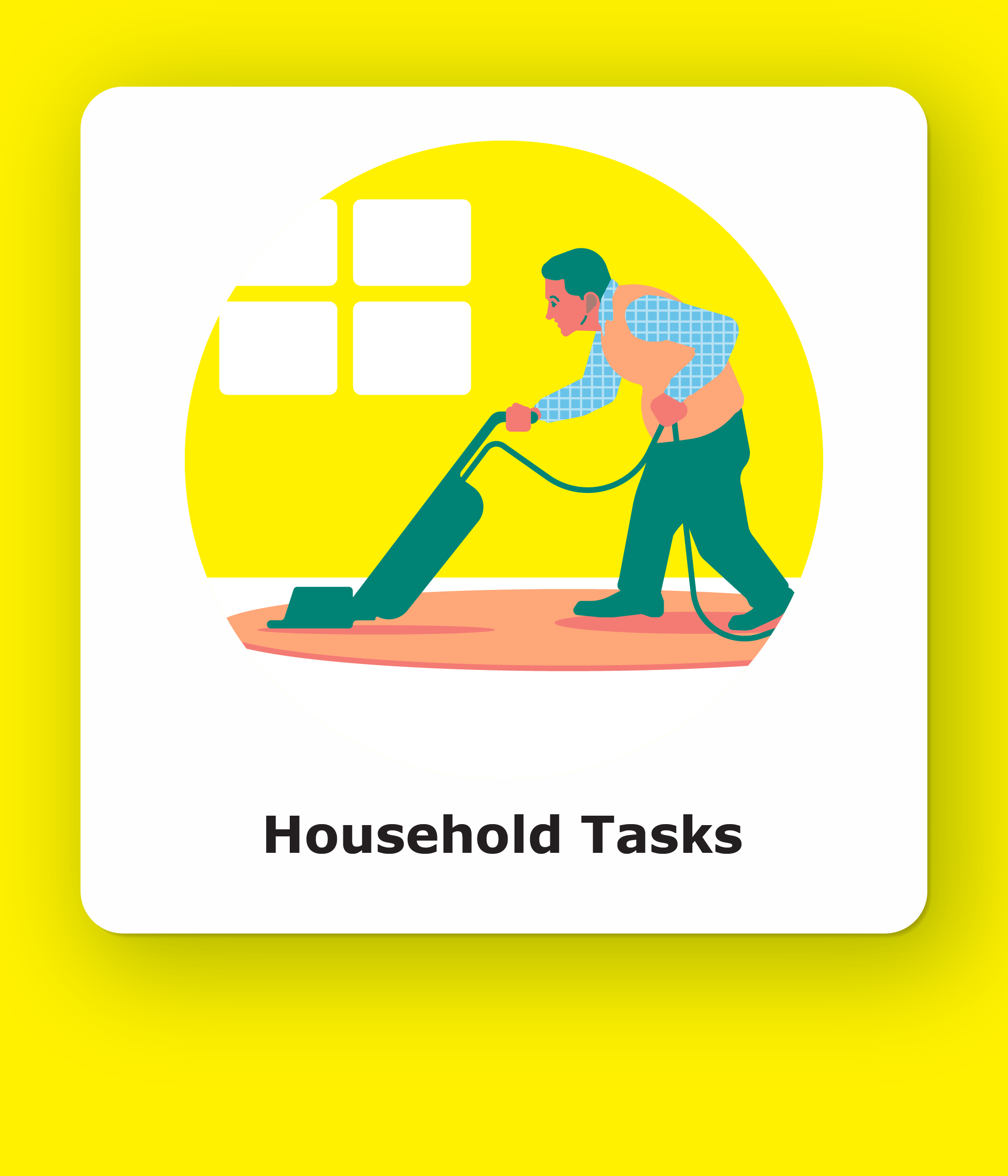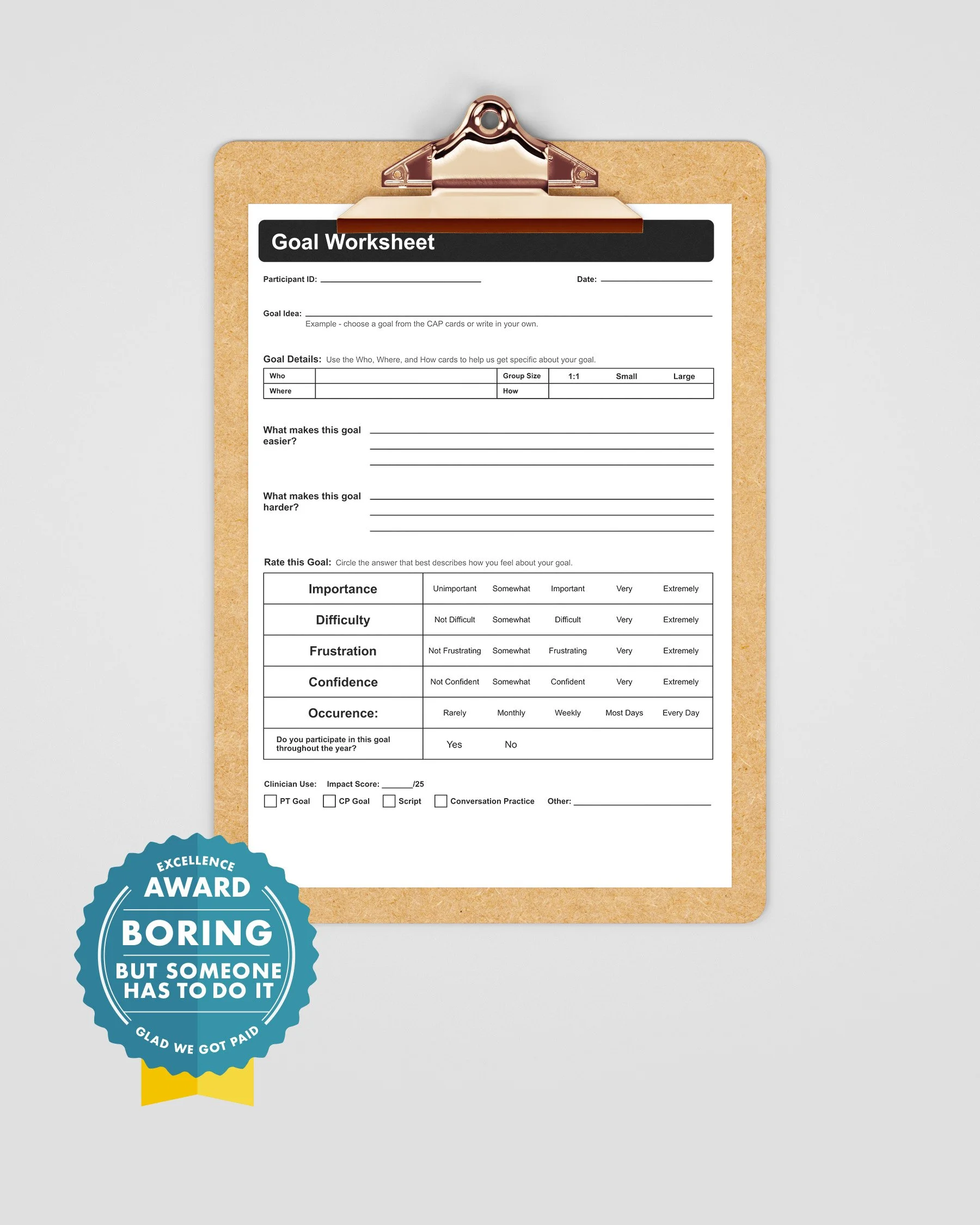
Communication Bridge
Primary Progressive Aphasia is a rare condition that affects a person’s ability to communicate. One way of understanding it is that people with PPA have trouble finding words. It generally comes on earlier in life than other forms of dementia and it is progressive. People with PPA will eventually lose the ability to speak, to write, and to understand anything being communicated to them.
The University of Chicago Healthy Aging & Alzheimer's Research Care Center is running a clinical trial to help people with PPA and their partners to develop abilities to prolong their ability to communicate.
Activity Cards
The first thing participants need to do in trial is choose a number of focus areas to work on. This is difficult given the limitations of their language capabilities. One way the HAARC Lab helped them was by creating a deck of 40 illustrated cards that helped participants better put into words areas of difficulty they might have. These ranged from concrete items like Shopping to abstract ideas like Self-Efficacy.
The cards need to be reusable and long lasting. They were printed on a high quality waterproof paper that is durable and tear-resistant. We rounded the corners on the cards to cut down (literally) on the part of the card most likely to show wear and tear.












Goal Setting Cards
After participants choose areas of focus, they’re asked to create specific, measurable goals. They work with the clinicians in the HAARC lab and with their partners to set goals. In order to help with those goals, HAARC wanted an additional set of cards to help walk participants through questions one by one. Again, having graphic representation is necessary because the participants have varying levels of language capability.
We created a set of 54 custom icons for these cards. They’re laminated and users are provided a dry erase marker so they can re-use the cards for each of the goals they set.
Worksheets
The Activity Cards and the Goal Cards are both aids used to help participants think through and record their goals. The clinicians in the trial preferred a paper worksheet for this.
Let it be known - WEECO is willing to do unsexy work for a paycheck. Also, tell us that’s not a nice worksheet, c’mon.
Videos
The Communication Bridge intervention takes place almost entirely online. Participants are mailed a tablet and their box of cards during onboarding. The clinicians requested some explanatory videos to help explain the process and importance of goal setting during the intervention, as well as how the goals would be used throughout the trial.
In the interest of consistency, repetition, and budget, we reused as many of the assets we’d already created for the cards to create 22 minutes of animated instruction videos.
Effect
HAARC’s Clinical trial is ongoing and long-term. We don’t know if it will show efficacy in managing PPA or not.
We do know the cards worked though! The primary researcher for the trial, Dr. Emily Rogalski reached out after the first round of participants was onboarded. I asked if everything we’d made had worked out like they hoped. She laughed and reminded me that due to difficulties with language processing, people with PPA tend to speak in very straightforward wars. One of the participants watched the videos and told her, “These were very helpful. Now I understand the important of setting goals for the intervention.”
I can’t tell you how much I wish I’d gotten a more believable feedback quote, but there we go.



